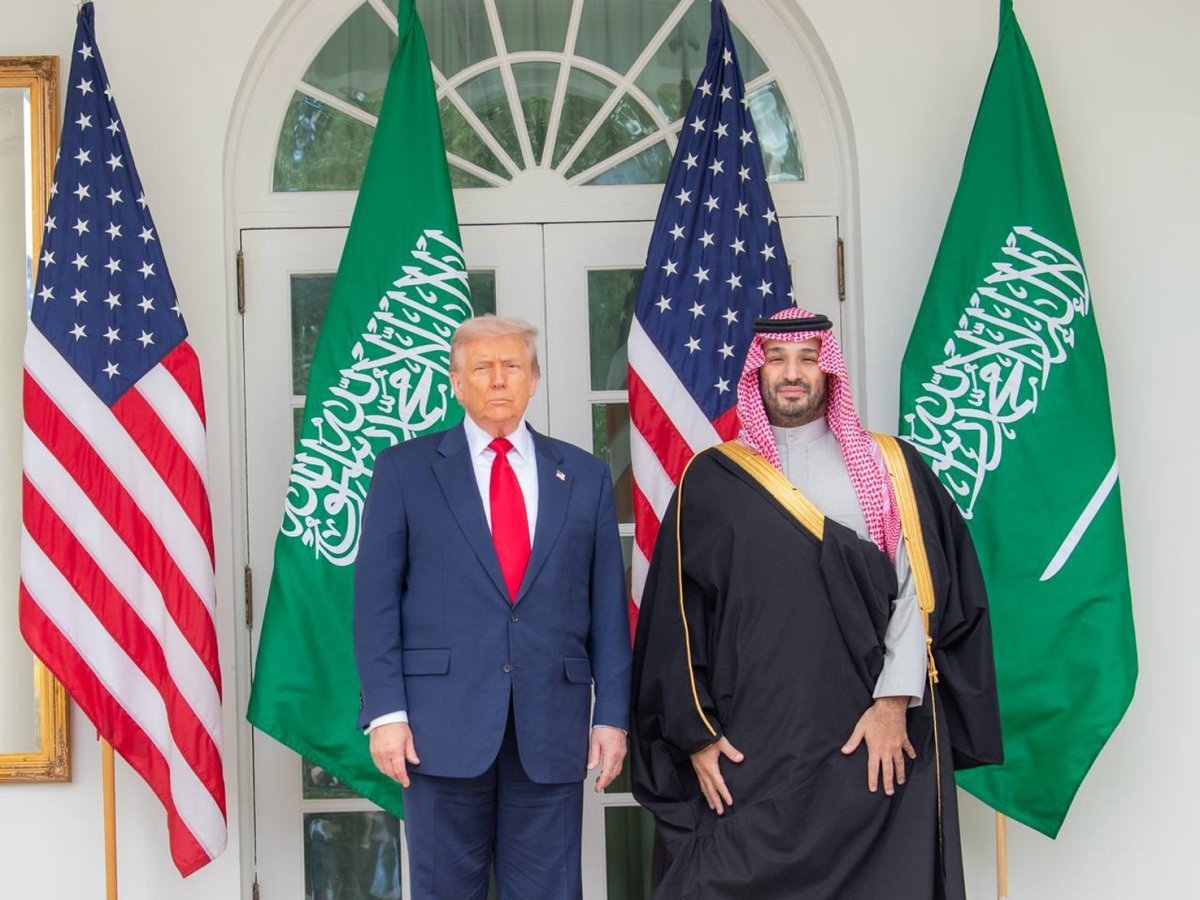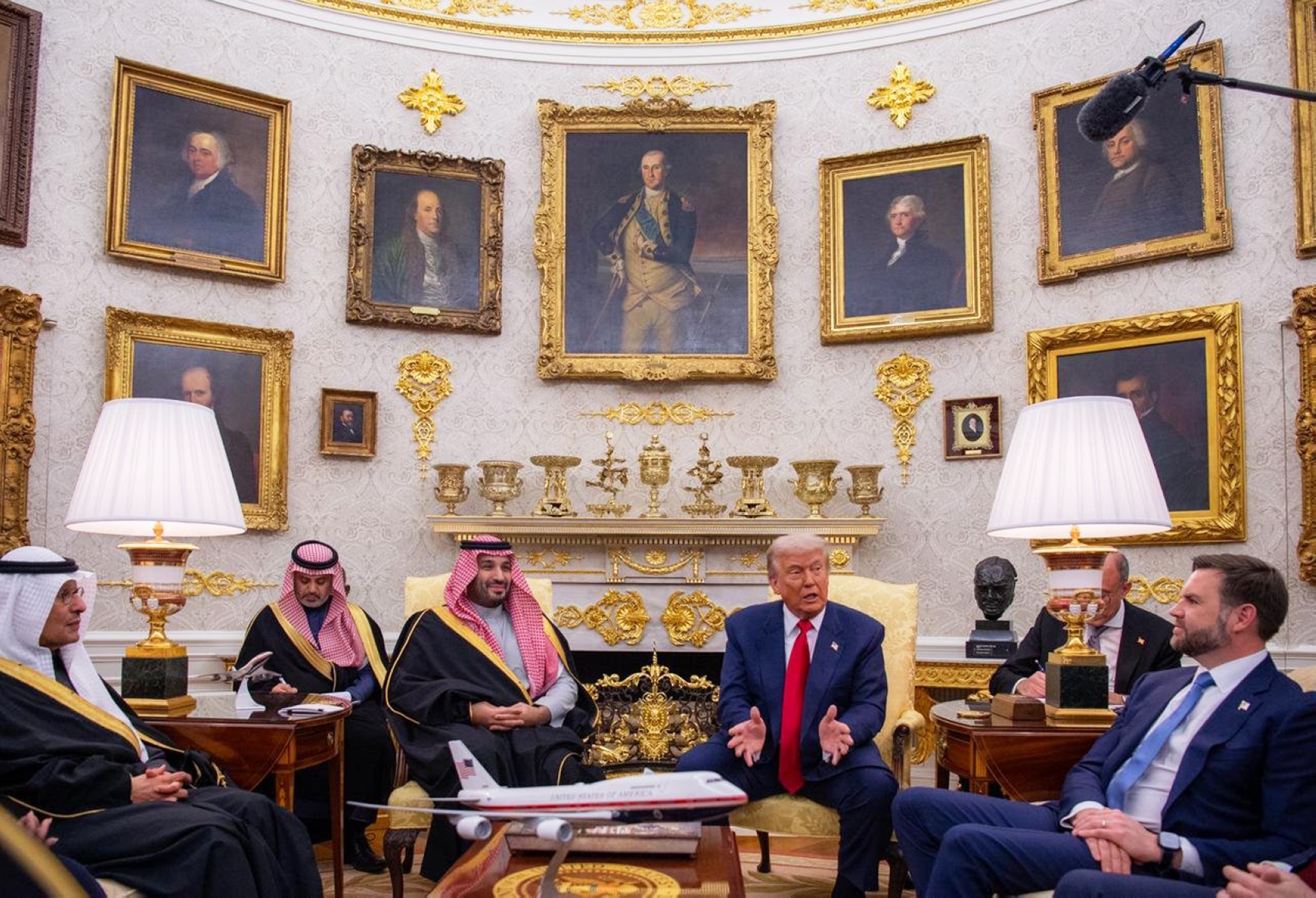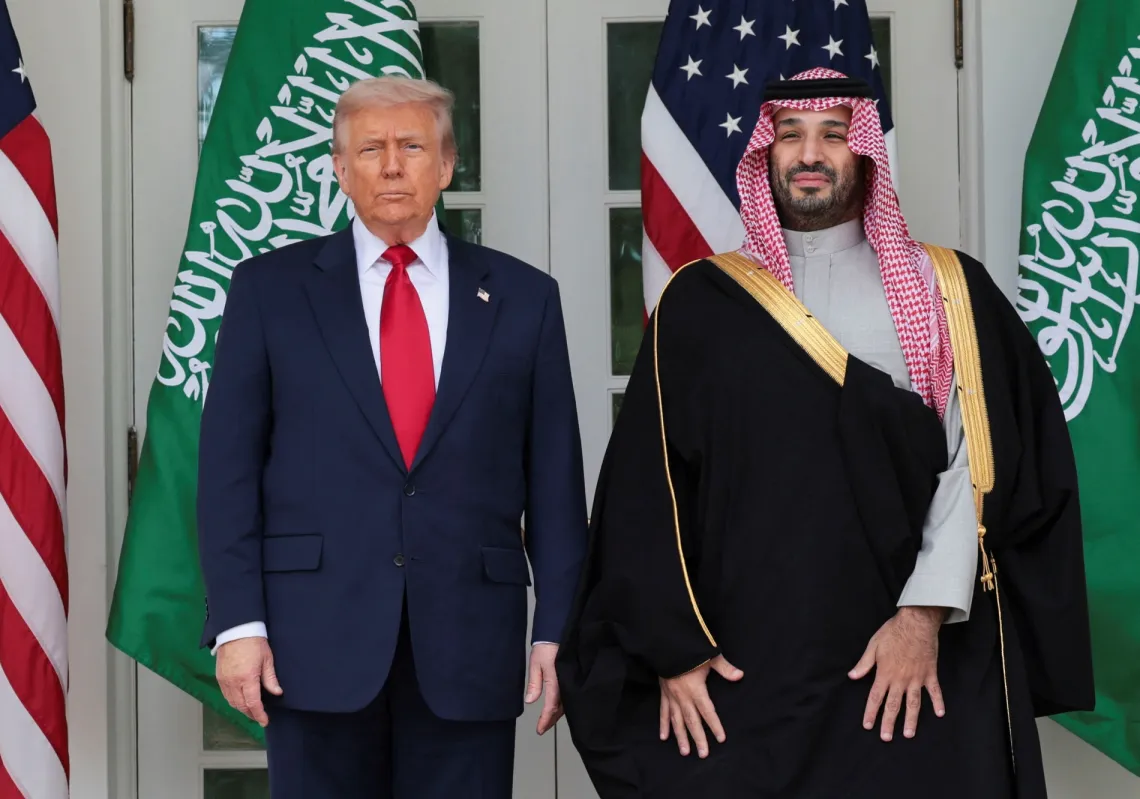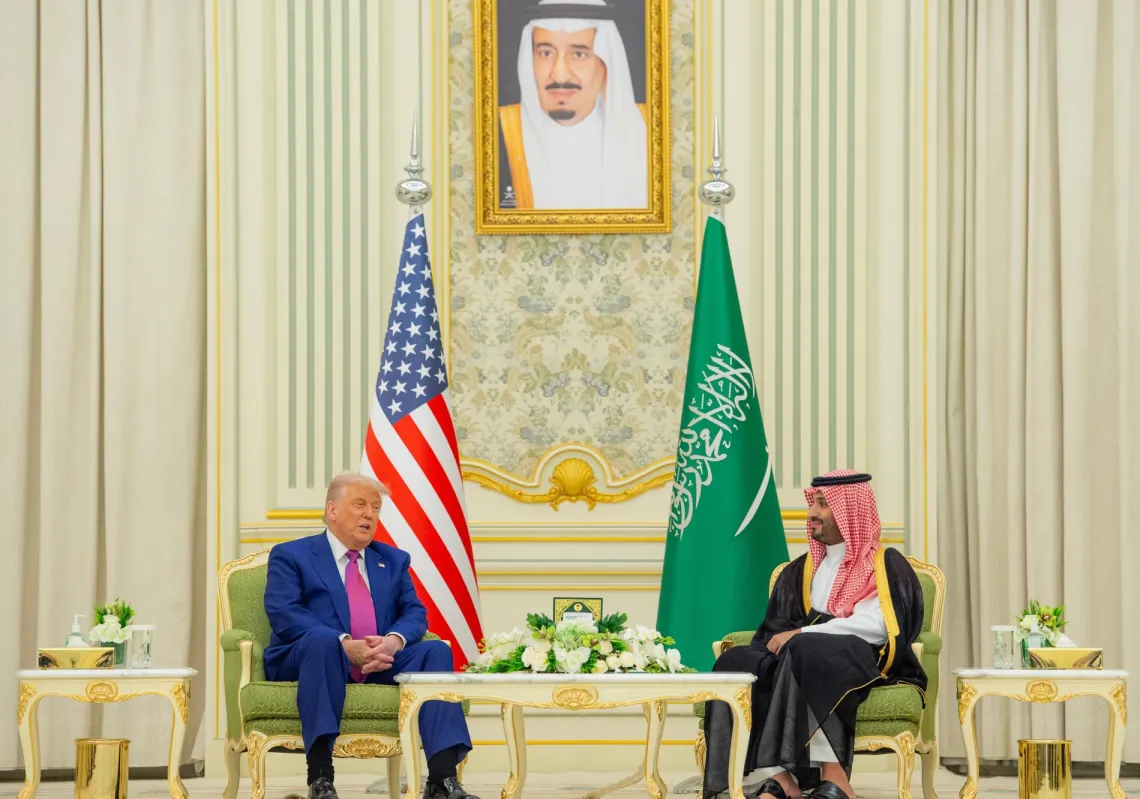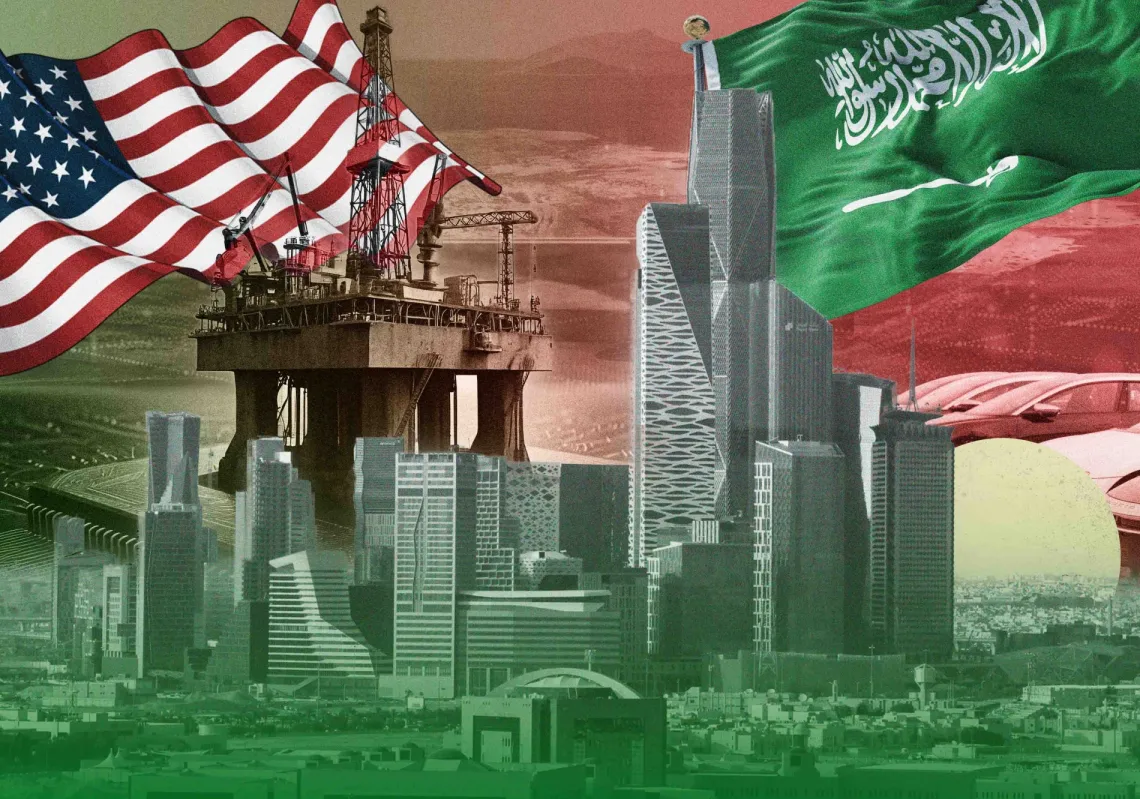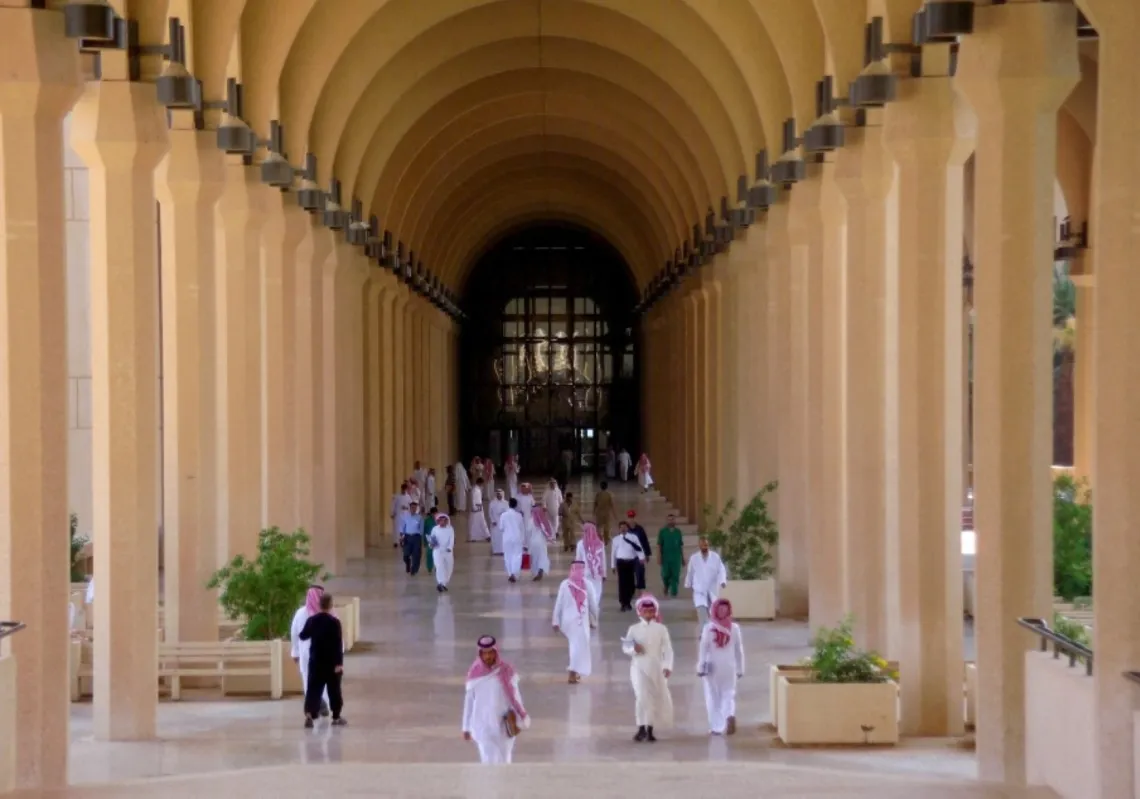The US-Saudi relationship took a step forward on 18 November when Crown Prince Mohammed bin Salman landed in Washington for a White House meeting with President Donald Trump on what has been called their “future partnership”. Both leaders were pleased to discuss the significant increase in Saudi investment in the United States—from $600bn to $1tn, particularly in sectors such as infrastructure, technology, and defence.
The lavish welcome extended to the Saudi delegation can be seen as Washington's desire to turn the page on past tensions and to reaffirm an important relationship with mutual interests. And while some US politicians have been critical of Washington’s closeness with Riyadh in recent years, they now appear to be a minority.
Seeking guarantees
After months of draft negotiations, the core of this visit was Riyadh’s attempt to shift its relationship with Washington to a binding, institutional treaty rather than the kind of informal, transactional deals characteristic of Trump’s tenure. For the crown prince, this cannot simply be a White House executive order, since these can be undone by any future president at the stroke of a pen.
Although a treaty would require Congressional approval, Riyadh does not see this as a major obstacle. Such a treaty would offer Saudi Arabia a stable and predictable security environment for decades to come, and is therefore seen as a strategic necessity for the country’s transformation under its Vision 2030 programme.
As previously noted, the historic US-Saudi alliance was based on oil and security, but the world has moved on. Washington is now an energy superpower, no longer reliant on Saudi crude, and Saudi Arabia increasingly feels less secure than it once thought. The 2019 Houthi missile attacks on major Saudi processing plants at Abqaiq and Khurais (which halved the country’s oil production for several weeks during repairs) showed the limits of any implied American ‘security umbrella’. This level of volatility is no longer acceptable for a state building a project the size of Vision 2030.
The primary challenge of the November 2025 visit was therefore the leveraging of Saudi economic, military, and political cards to extract the permanent, institutional commitment long sought by Riyadh. Of these areas, the economic dimension was the most dazzling.
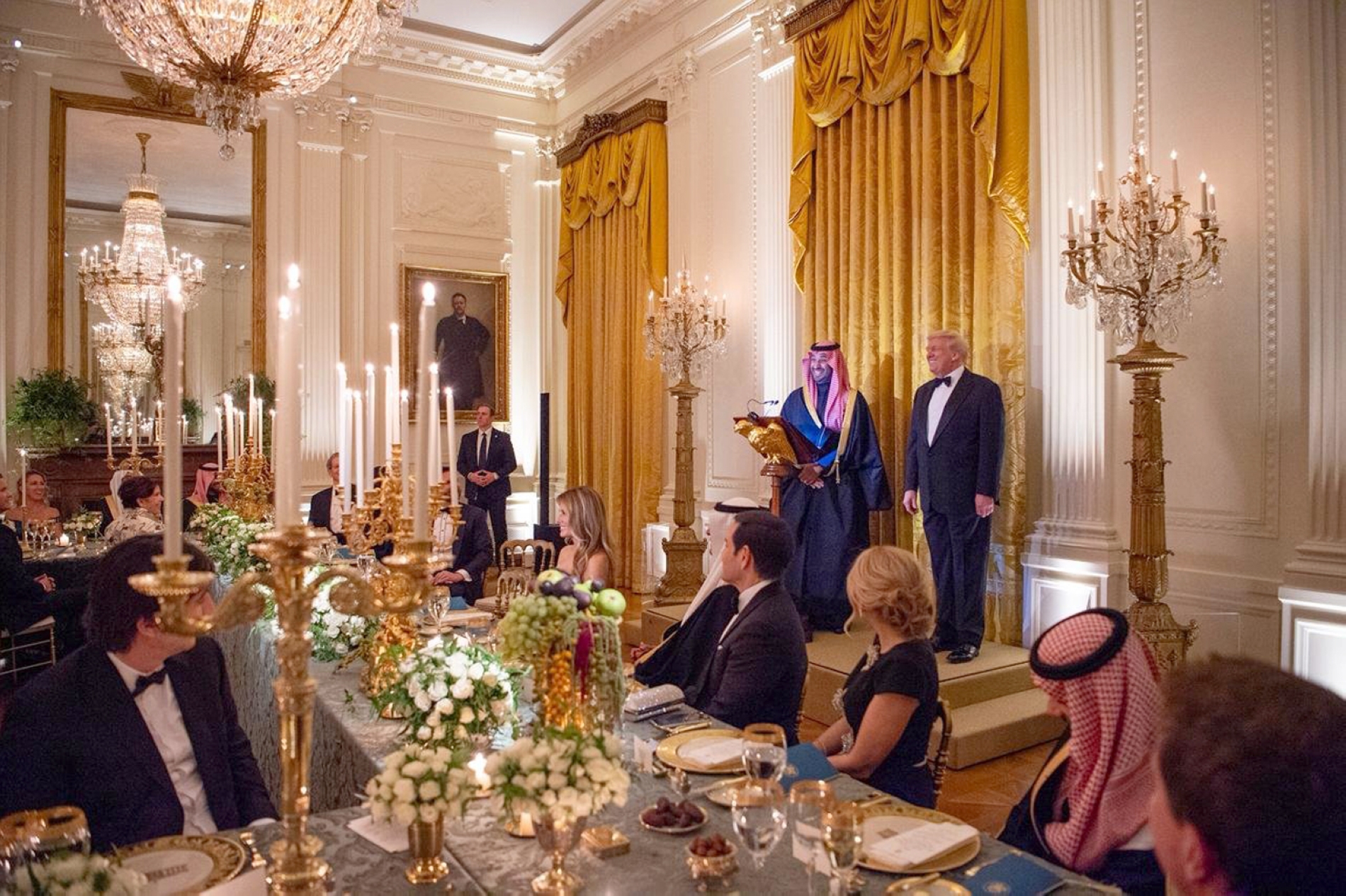
Saudi investment
The investment is a win-win and fits into the Saudi economic strategy, but the big numbers perfectly serve Trump’s deal-making mindset, with the Oval Office commitment to raise existing investment agreements valued at $600bn to $1tn over four years—a massive injection of liquidity via the Public Investment Fund (PIF), which is Saudi Arabia’s sovereign wealth fund. No longer just an oil exporter, this places Riyadh as an American partner in manufacturing and innovation.
Of political importance will be ‘where’ the Saudi investment is targeted. This could be in key political states, perhaps covering constituencies where employment is a top priority or where Republicans face strong challenges from Democrats. Both Riyadh and Washington will know that foreign direct investment can create jobs, just as investment withdrawal can lead to unemployment. This geographic distribution could, if needed, be a last-resort tool to be used by Saudi Arabia if bilateral negotiations in other areas of critical importance break down.


